






Cremation services hold an ever-increasing percentage of the funeral market. The cremation process is efficient and cost-effective, and easily coordinated with a cremation service. For a family grieving the loss of a loved one, decisions and detail work can be over whelming. Cremation service is simple, requiring few decisions. Cremation services cost less than other funeral services, freeing a family from unnecessary financial burdens.
Cremation may follow a funeral service or occur before a memorial service. Families can decide whether to have a traditional casket service else where before cremation. Conversely, a family may want to proceed with cremation and then hold a memorial service during which the urn is placed on a table display. The urn is often accompanied by a picture of the departed and a spray of flowers. Preplanning a cremation service is a particularly graceful gift one gives to the family, expressing consideration for them.
After the funeral and cremation services, families may choose to scatter the remains, place the urn in a gravesite or columbarium, or retain the urn. A cremation service necessitates some element of decision on the family’s part in this regard. Ashes may be scattered at sea off the side of a boat. When families scatter at sea, they often scatter flower petals on the water. Alternatively, cremated remains may become part of the Memorial Reef. Cemeteries are prepared for
families who would like to place the urn at a gravesite. Special fixtures exist that allow families to do just that. If a family would like to keep the urn as a memorial, it is usually displayed on a mantle or small table accompanied by a picture of the loved one. A cremation funeral service is similar to traditional casket services in most ways. A cremation service is a gracious way to honor a loved one, and the cremation cost does not impose any extraordinary burdens on a family. Planning a cremation funeral service takes the level of planning that would go into any memorial service, and the results are a beautiful memorial that captures the love and respect that the family intends.
Personal philosophy
Environmental philosophy Economy
Simplicity or convenience



It certainly goes without saying that being diagnosed with cancer is overwhelming, to say the least. In today’s world, and after decades of research, there is a renewed sense of hope following a cancer diagnosis. New procedures and courses of therapy continue to emerge that give patients hope, not only for survival, but for a healthy future.
Choosing the right cancer center is a critical step in your treatment, and one that should not be taken lightly. You should consider a variety of factors before making your decision.
The rst step in choosing a cancer treatment center should be to speak with the diagnosing physician. At this point, this is your rst ally in your journey and understands your health the best. Speak openly with this physician and get a second opinion if you feel necessary.
Make sure you understand your diagnosis. What kind of cancer do you have? Where is it located? Then most importantly, what are my treatment options? Find out how the treatment will affect you, physically, socially, and emotionally, and what the goal of the treatment is. Is it meant to slow, stop, or eliminate the cancer?
You then need to decide what is most important to you and how you want to approach this upcoming battle. Do you want to go with the most aggressive treatment plan or do you want to take a slower approach so that you have less side effects from the treatment. Discuss your priorities and concerns with your physician so they can make informed decisions about your treatment. Understand your insurance as the type of coverage that you have will affect your decision. Requesting a list of approved treatment centers is the most comprehensive way to understand your options.
Location should be a consideration when determining which treatment center works best for you. It is not necessary to choose a facility close to home, but it is worth considering. Cancer treatments can sometimes require one or more visits a week. Proximity to your home is an important factor in that traveling a full day for you and possibly a companion may become tiring, especially when coupled with the treatments them-

selves. If you are considering a treatment center far from home, it is best to nd out if the center offers a place for you and your family to stay overnight, and if it is close to airports and hotels.
Visit the referred cancer center. Where allowed, look around the facility and engage with staff if possible. The cancer care team at the facility that you ultimately choose may include nurses, physician’s assistants, social workers and technicians, in addition to your oncologist. They will become part of your family. It is important that you get a good understanding of who will be helping facilitate your treatment plan.
Ask for referrals or reach out to friends and family who you know have already gone through a similar diagnosis. Unfortunately, even with advances in healthcare, almost everyone knows someone who has been diagnosed with cancer. Cancer survivors can be a great resource and even more so, a shoulder to lean on.
Ultimately it is about being a smart patient and taking charge of your care. Be your own patient advocate, but do so wisely. Do not
engage in the world wide web for guidance. Speak freely with your doctors. Listen to what they have to say. Self advocacy does not have to be dif cult. It is a matter of asking questions and understanding that you are not alone on this journey.
Whether it is battling cancer or supporting a loved one, it can be one of the hardest ghts of your life.
Inform yourself about your cancer. Decide carefully on your treatment plan.
Be a smart patient. Make the most of avail able support services. Consider your nances.



In partnership with UAB, we continue to invest in new talent, new technology, and new support structures so that, in the unfortunate event you are diagnosed with cancer, you can fight it right here at home.

The sale or purchase of your property should involve a professional. There are many avenues to explore before buying or selling and oftentimes the ‘for sale by owner’ route can be daunting and lead to unexpected mishaps from a selling, as well as a buying standpoint. For those looking for property, a good real estate agent can narrow your search greatly. For those preparing to sell property, the right agent can help you get the right value..
Real estate agents must be licensed by the state in which they work to buy, sell or rent properties. Before a license is issued, minimum standards for education, examinations and experience, which are determined on a state by state basis, must be met. Agents are tested on challenging material and must keep up to date on the constantly changing real estate market. For that reason alone, choosing to use a licensed agent, and a good one at that, is critically important.
After receiving a real estate license, most agents join their local board or association of realtors and the National Association of Realtors, the world’s largest professional trade association. They can then call themselves realtors. The term realtor is a registered collective members mark that identifies a real estate agent professional who is a member of the National Association of Realtors and subscribes to its strict Code of Ethics (which in many cases goes beyond state law).
It is the realtor who shares information on the properties they are marketing, through a multiple listing service (MLS). Working with a realtor who belongs to a MLA will give you access to the greatest number of homes.
Licensed real estate agents organize transactions. Their primary job starts with finding properties to match their buyer’s wishes or finding buyers for the seller’s property. They are also responsible for introducing offers and counteroffers between parties, as well as answering any questions that come about during the process. Agents will make certain that their clients are fully aware of all requirements to complete the transaction. Without any obligation, you can invite local realtors to visit your property for a “listing presentation” about why they’re the best

ones to market your property. Two to three presentations will probably give you a good opportunity for choice. A listing presentation includes having the realtors review with you the reasons why you should list with that particular individual, and provide you with information that will assist you in making initial decisions about selling your property.
What is your marketing plan?
How will we communicate throughout the process?
Do you belong to the MLS and/or a reliable online home buyer’s search service? What have you listed or sold lately?
Is a member of the local board or association of realtors.
Explains and discloses agency relationships (the role of the agent, i.e. who they are representing the buyer or the seller) early on in the process at “serious rst contact.”
Advises you on how to prepare your home for the market.
Advises you on how to prepare your home for the market.
Shows enthusiasm for your property, listens attentively, instills confidence, operates in a professional manner, and has a complementary personality style to yours. Has researched your property in the public records and the MLS.
Brings data on nearby homes that have sold (or failed to sell) recently.
The following are important questions to ask a potential agent:
What experience do you have in buying and selling real estate?
Do you have an active real estate license in good standing? To find this information, you can check with your state’s governing agency.
What share of the commission will you offer a cooperating broker who finds the buyer?
Some of the duties your realtors will perform for you include:
Walk through the process of selling your home from beginning to end.
Provide comparable information about the prices for which other properties have sold and analyze data for you to gain a true comparison.
Supply information regarding local regulations you may want to consider.
Share information about your home through the Multiple Listing Service and on the internet.
Place advertisements for your home.
Field phone calls.
“Qualify” potential buyers to make sure they would be financially able to buy your property.
Negotiate the sales contract.
Alert you to potential risks.
Comply with disclosures required by law. Provide you with an estimate of the closing costs you will incur.
Help you prepare for a smooth closing of the transaction.



Acardiologist specializes in nding, treating, and preventing diseases of the heart and blood vessels in adults. A cardiologist evaluates, identi es, and treats heart problems using a variety of technologies including EKG, lab testing, ultrasound, X-ray, CT scanning, nuclear medicine, and cardiac catheterization and interventional techniques. Cardiologists also implant pacemakers and de brillators. They do not perform open-heart surgery.
After four years of medical school, these highly trained doctors spend an additional six to eight years in specialized training. A cardiologist receives three years of training in internal medicine and three or more years in specialized cardiology training.
Cardiology is a highly technical eld that requires continuous educational updates to remain current. Choosing a cardiologist who has training in all aspects of cardiology is critical. Experience at performing cardiac procedures and demonstrating competency in managing patients with critical heart conditions such as acute MI is necessary. Good rapport and communication between patient and physician is important to build patient con dence and sense of security.
If your cardiology specialist adds F.A.C.C.Fellow of the American College of Cardiology - to his or her name, it is a sign of signi cant accomplishment and commitment to a profession, to a specialty, and to the provision of the best health care for the patient.
Election to ACC membership is based on training, specialty board certi cation, scienti c and professional accomplishments, length of active participation in a cardiovascular-related eld, and peer recognition. Members are expected to conform to high moral and ethical standards.
Any time you have a signi cant heart or related condition, you may require the attention of a cardiologist. Symptoms like shortness of breath, chest pains, or dizzy spells often require special testing. Heart murmurs or EKG changes are best evaluated by a cardiologist. Look for certi cation by the American Board of Internal Medicine in International Cardiology when you are being evaluated by a cardiologist. Most importantly, cardiologists treat heart attacks, heart failure, and serious heart rhythm disturbances.

Their skills and training are required for decisions about heart catheterization, balloon angioplasty, heart surgery, and other procedures.
DIAGNOSTIC
WHICH MAY BE NECESSARY
Your cardiologist will review your medical history and perform a physical examination which may include checking your blood pressure, weight, heart, lungs, and blood vessels. While some problems may be diagnosed from this examination, your cardiologist may order an EKG, X-ray, or blood tests. In addition, an ambulatory ECG, echocardiogram, exercise test, heart catheterization and/or nuclear imaging may be required.
THE CARDIOLOGIST AND YOUR PRIMARY CARE PHYSICIAN
The cardiologist usually serves as a consultant to other doctors. Your primary care physician may recommend a cardiologist or you may choose one. As your cardiac care proceeds, your cardiologist will guide your care and plan tests and treatment with the doctors and nurses who are looking after you.
Choosing a cardiologist who has training in all as pects of cardiology is vital. Look for F.A.C.C. Fellow of the American College of Cardiology designa tion when choosing a cardiologist.
If you are experiencing shortness of breath, chest pains or dizzy spells, call your Primary Care Physi cian or a cardiologist.
Summertime means time on the water, time away from work, and more time with family and friends.
Make sure your heart is healthy and ready for the season with an appointment at the UAB Heart & Vascular Clinic at Russell Medical.
Kevin Sublett, MD, is board-certified in cardiovascular care and offers the latest in prevention, testing, and treatment for keeping your heart healthy.
Our clinic is backed by the knowledge and expertise of UAB Medicine, including:
• Advanced ultrasound testing
• Nuclear medicine imaging in fully accredited labs
• Management of cardiac rhythm disorders
• Interventional cardiology care
Our expanded clinical team is ready to serve you. Schedule a visit today by calling 256-234-2644.

The invisible systems in a home often are taken for granted. When such systems are working as expected, daily life moves along smoothly. However, when a system goes awry, it can negatively impact routines and may create a dangerous home environment. This is especially true when something goes wrong with a home’s electrical system.
Faulty wiring is a leading cause of residential fires. Many homeowners, particularly those who live in older homes, might be living in properties that have outdated electrical systems. The experts at Lowes ProServices state that having old wiring and/or insufficient amperage in a house can endanger residents. It also may damage appliances and make it difficult to sell a property in the future.
It can be difficult to gauge exactly when to overhaul an electrical system. Unless circuits routinely trip or lights often dim, homeowners may put off the work. But degrading wires or overextended circuitry can pose a fire risk, so it is best to address electrical systems promptly.
Home inspections may uncover electrical problems. Some homeowners may discover potential trouble while making renovations that require opening up walls or tearing them down, exposing the wires. Still other homeowners learn about electrical systems when they’re adding new, large appliances or other gadgets that consume more power than existing items. These devices may continually cause power outages in the house, such as tripping the circuit breaker or popping a fuse. When it comes time to update the electrical system, it is always best to work with licensed and bonded electricians who have the expertise to work with electrical wiring without getting injured. This is not a do-it-yourself type of job since it requires specialized training.
Electricians likely will recommend upgrading the electrical panel to bring more power from the utility poles into the home. This can include replacing the existing meter and circuit breaker box to allow it to handle more power or replac-

ing items that are obsolete or dangerous. Many older homes are only capable of handling a minimum number of amps, utilizing just a few circuits. But nowadays, when homeowners have far more electronics in their homes than they once did, increased demand on electricity can overload a circuit (all of the outlets linked on one wire). Tripping a circuit breaker is a safety measure to prevent the wire from becoming overheated and causing a fire. However, in some old systems, the circuit breaker will not trip, and this can be problematic.
Rewiring a home is another step. Wire insulation can deteriorate over time, and new wires may be needed. This can be messy and time-consuming, but it’s a small price to pay for safety. When rewiring an electrician also may suggest new outlets. Many home building codes now require outlets with ground fault interruptors, or GFIs, in kitchens, bathrooms and other rooms exposed to moisture. Some older homes may not even have threepronged outlets, so this will necessitate an update as well.
Electrical systems are the heart of a home, delivering power where it is needed. It is essential to keep such systems up-to-date so they can handle the power demands of everyday life.
Ask your friends and neigh bors for a recommendation. If you can’t get a recommen dation, use the local press or Internet
Phone three or four electri cians or electrical contrac tors to get full quotes so that you know what the total cost should be before the work begins.
Don’t go on price alone. Ask whether the electrician or electrical contractor guaran tees their work.
Look for an electrician who is a specialist in the type of electrical work you need se curity or communications. Check that the electrician holds a valid license for the jurisdiction in which the work will be carried out, and that he or she is registered. Check that your electrician has public liability insurance in case of an accident while working on your electrical jobs.
Ask for references. Check with the Better Busi ness Bureau to find out whether there are any com plaints or negative com ments against the electrician or contractor.


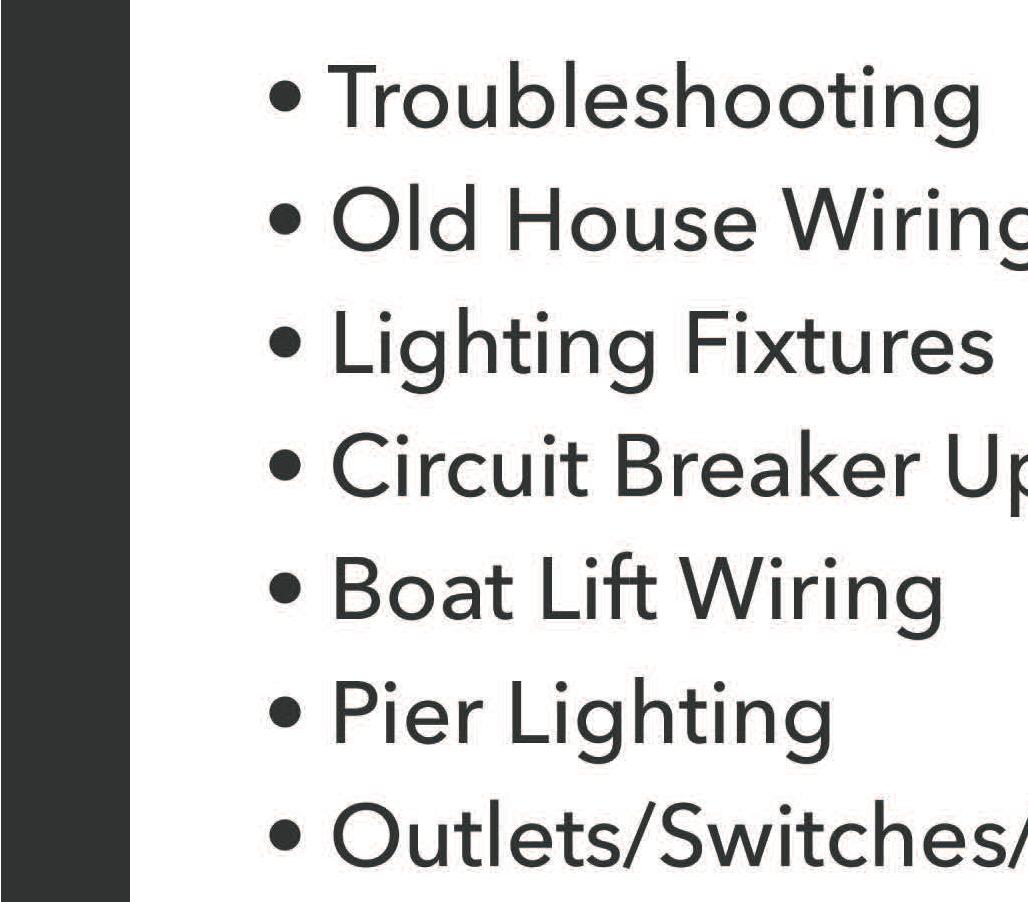






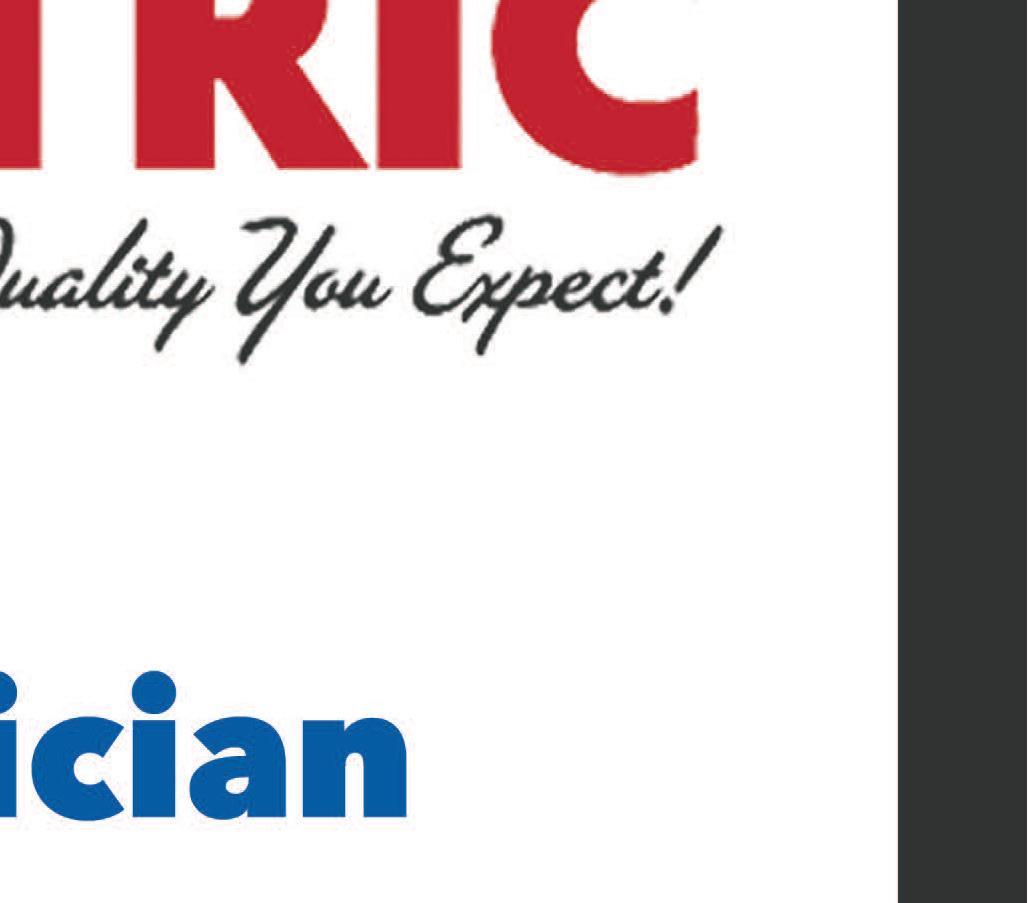


What is a Comprehensive Wound Healing Center?
A Comprehensive Wound Healing Center is an outpatient department of an acute care hospital providing medical evaluation of patients with wound healing problems and specialized treatment of these wounds using the most advanced techniques, products and services. The Comprehensive Wound Healing Center is staffed by a specially trained team of doctors, nurses and other health care workers dedicated to the treatment of wound healing problems. Most treatments, including hyperbaric oxygen treatment, are provided in an outpatient setting.
Why is a special center for treating wounds bene cial?
Comprehensive Wound Healing Centers ful ll the needs of patients who require specialized and aggressive care for their wounds that typically cannot be provided in traditional medical settings. Published medical and nursing evidence suggests that specialized centers for treating wounds improve outcomes by providing early and coordinated access to the full range of medical, surgical, and nursing interventions that may be required.
How do I know if I have a chronic, nonhealing wound?
If a wound has not improved signi cantly in four weeks or if it has not completed the healing process in eight weeks, it should be considered a chronic wound and one at risk for prolonged non-healing. Patients who have diabetes, arterial disease or chronic edema of the lower extremities, or a history of collagen vascular disease such as scleroderma or rheumatoid arthritis should seek early referral to a Comprehensive Wound Healing Center.
What are the causes of chronic wounds?
Diabetes, immobilization, chronic edema, and circulatory problems contribute to the majority of chronic, non-healing wounds. Approximately 1.5 million people with nonhealing wounds have diabetes. Another 2.5 million patients have pressure ulcers. Each year 500,000 new lower extremity ulcers develop in patient with chronic venous insuf ciency and stasis. Other chronic wounds are the result of traumatic injury, nonhealing surgical incisions, and a variety of other diseases that affect the skin.
What is hyperbaric oxygen treatment?
Hyperbaric oxygen treatment is the breathing of 100 per cent oxygen at a pressure greater than one atmosphere, the pressure of air at sea level. In order to accomplish this treatment, a patient must be enclosed in a specially constructed chamber. Two types of chambers are commonly used to treat patients. The majority of hyperbaric oxygen treatments are administered in monoplace hyperbaric chambers holding a single patient and made of acrylic and lled with 100 percent oxygen. Patients may also be treated in multiplace chambers that are typically larger, hold multiple patients, and are lled with air. Patients in multiplace chambers breathe 100 per cent oxygen by wearing a mask or hood during treatment. Hyperbaric oxygen treatment was originally used to treat divers suffering from the “bends” or decompression sickness but is now used to treat patients with a variety of wound healing problems including certain chronic bone infections (osteomyelitis) and certain rapidly progressive acute infections such as those caused by “ esh eating” bacteria (necrotizing fasciitis).
What are hyperbaric oxygen treatments like?
Hyperbaric oxygen treatments include three phases: compression to the prescribed treatment pressure, the prescribed time at pressure, and decompression from the treatment pressure back to surface or atmospheric pressure.
Compression: During the compression phase patients feel a “fullness” in their ears similar to what is experienced as a commercial airliner lands. This increase in pressure on the tympanic membrane or ear drum must be equalized by performing a valsalva maneuver or be swallowing or yawning. The temperature in the chamber also increases slightly during compression.
Treatment: The treatment phase begins when the pressure reaches the prescribed level. The patient breathes 100 per cent oxygen with brief interruptions to breath air to reduce the risk of any toxic reaction to prolonged oxygen breathing. During the treatment patients may rest, sleep, listen to music, or watch television.
Decompression: During decompression the pressure within the chamber is reduced to that at the surface. Decompression results in mild cooling. Once the chamber pressure equals the outside or surface pressure the treatment is completed and the patient is removed from the chamber.
What is hyperbaric oxygen treatment used for?
Hyperbaric oxygen treatment may be used to treat a number of clinical conditions. The Undersea and Hyperbaric Medical Society’s Oxygen Therapy Committee has recommended hyperbaric oxygen treatment as bene cial in the following clinical conditions including:
Air or gas embolism
Decompression sickness
Carbon monoxide poisoning
Cyanide poisoning
Crush injury, compartment syndrome, and other acute traumatic ischemic injuries
Compromised skin grafts or aps
Thermal burns
Other problem wounds complicated by hypoxia and speci cally diabetic foot ulcers
Necrotizing soft tissue infections
Gas gangrene
Refractory osteomyelitis
Osteoradionecrosis
Soft tissue radionecrosis
Make sure the clinic’s staff provides comprehensive wound treatment and can help with billing and insurance questions, scheduling, transportation and other issues
An excellent facility will make sure patients and their families receive education in the day to day care of the wound or ostomy.
The clinic should have no problems with referring patients to other specialties, including vascular surgery, orthopedics, physical therapy, nutrition counseling and home health.

Dr. Regina Phillips recognized with National President’s Circle Award for Clinical Excellence in Patient Satisfaction and Clinical Outcomes. Dr. Phillips is the is the only physician in the country to receive this top honor from Healogics for 2023!

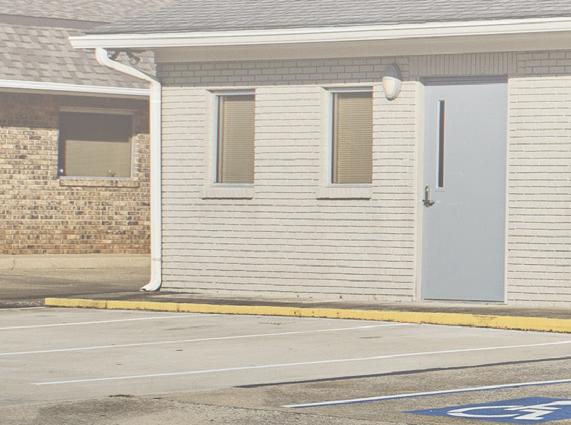


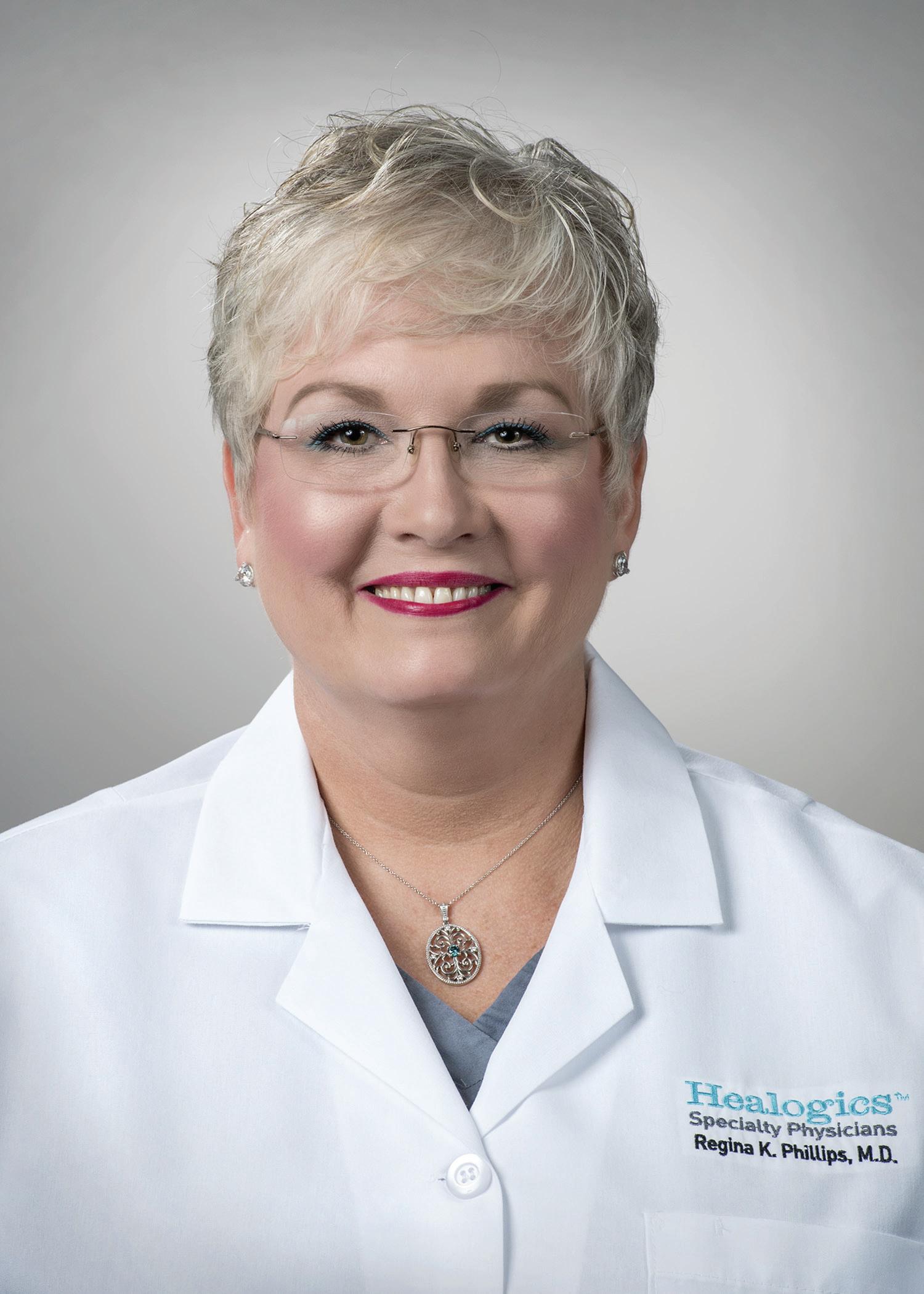

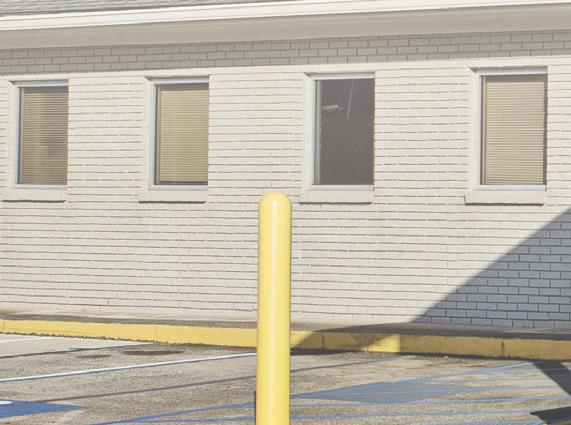



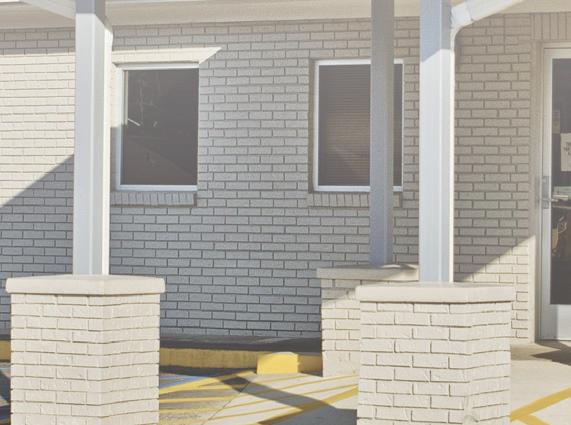



and Hyperbaric Medicine achieved outstanding clinical outcomes for twelve consecutive months, including a patient satisfaction rate higher than 92 percent!

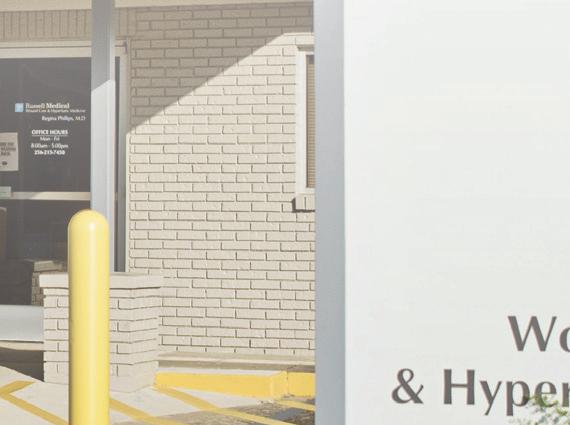






The tires on your vehicle can affect your safety and your driving enjoyment. Choose tires that match both your vehicle and the way you drive.
HOW MANY TIRES DO I NEED?
All four tires should be identical. If your tires don’t match, you could have handling problems. For instance, one end of your vehicle may not respond as quickly or completely as the other end, making the vehicle more difficult to control.
If you just need to replace one tire that has been damaged, replace it with a tire of the same brand type, size and speed rating. A tire that doesn’t match the other three tires on your vehicle could affect your driving safety.
If you need to replace two tires and the remaining two have a lot of tread depth left, replace them with tires that match your existing set as closely as possible. Identical new tires are best but others of the same size and type can also provide good results.
SHOULD I BUY A DIFFERENT TYPE OF TIRE?
If you are replacing all four tires, you can explore another category of tires. If you want longer lasting tires, better traction or a smoother ride, there are tires that will help you accomplish this.
WHAT SIZE OF TIRE DO I NEED?
Tires must be able to carry the weight of your vehicle. If a tire is overworked just carrying the load, it will have little reserve capacity to help your vehicle respond quickly and safely. Do not buy undersized tires. Check your
owner’s manual, vehicle door jam or glovebox, to find the size of tire recommended for your vehicle.
The other size consideration is overall tire diameter. For cars and vans, stay within a +/-3% diameter change. Pick-ups and sport utility vehicles (SUVs) are usually engineered to handle up to a 15% oversized tire.
WHAT WEATHER AND DRIVING CONDITIONS WILL THE TIRES FACE?
Select a tire that suits the driving conditions you face most often:
— Snow or ice: snow tires
— Heavy traffic: more responsive tires
— Winding roads or in the mountains: a tire that handles well
— Extensive highway driving: tires with a smooth, quiet ride
If you face very different driving conditions (heavy snow in the winter and lots of highway driving in the summer), consider selecting two sets of tires. You’ll get better driving performance and longer total wear from your tires.
WHAT KIND OF “LOOK” DO I WANT?
Think about whether you’re happy with standard tires or you want the added flair of custom wheels or plus sizing.
HOW CAN I FIND THE BEST VALUE?

Simple fact: In the long run, cheap tires won’t save you money. They don’t last as long as higher quality tires and may result in a rougher ride and inferior han-
Your goal in tire shopping should be to find the highest quality tire that meets your specific needs and your budget.
A tire has several important func-
A tire’s ability to maintain its course affects the vehicle’s ability to drive in a straight path. The tire has to help the
vehicle steer regardless of road and weather conditions.
A car tire has to carry more than 50 times its own weight.
The flexibility of a tire helps it absorb obstacles on uneven road surfaces and provides a stable ride for the driver and passengers while protecting the vehicle.
Tires transmit the engine’s power to accelerate and the braking force to stop. How well the tire performs these functions depends in part on how well the tire is maintained.
P195/75R14 92H
The “P” stands for “passenger” tire. Tires for light trucks may be marked with ‘LT”
P195/75R14 92H
This is the width of an inflated tire (mm) at it’s widest point.
P195/75R14 92H
The aspect ratios the relation ship of the height to the width
P195/75R14 92H
“R” stands for “radial”, indicating the tire has radial construction.
P195/75R14 92H
The diameter of the wheel in inches.
P195/75R14 92H
The load index corresponds with the load carrying capacity of the tire. Most passenger car tires range from 75 105.

One of the most staggering pest control statistics is that the global market value is expected to hit an enormous USD 28.1 billion by 2027. There is clearly no shortage of consumer demand, which means there are plenty of pest control companies seeking to claim their share of the market.
But, how can you nd the best pest control company in your area? After all, you don’t want to hire a rm that uses unsafe practices or has a poor reputation. The good news is you can nd a top-class pest control business by looking for several vital factors.
Read on to learn how you can nd a reliable pest control partner.
It’s essential to ensure your chosen pest control company has a license and adequate insurance. A professional rm will be happy to provide their paperwork con rming they have taken the proper steps to provide a high-quality service that protects their customers. If a business is reluctant to give these details, it is probably best to look for another pest control business.
A commercial pest control service is unlikely to perform as good a job as a residential pest control company when it comes to ridding your home of unwanted guests. Check that a business has experience in the type of work you require, and only work with experts such as those you can nd at https://pestextinct.com/ to ensure you get the best results.

acceptable timeframe. You may also want to check if they can t their appointments around your current schedule.
For example, if you’d prefer to have the work done at the weekend when you can stay at a family member’s house, then enquire if the company can accommodate your request.
FIND THE BEST PEST CONTROL COMPANY FOR YOUR NEEDS
Choosing the best pest control company in your local area doesn’t have to be challenging. However, it’s essential to perform your due diligence. Ask a rm how much experience they have if their licensing and insurance are up to date, and how much they charge for their services.
When you nd the right pest control partner, you’ll be glad you took the time to ask these crucial questions.


You could nd there is a wide variation in pricing between different companies, and you only want to work with a rm in the pest control industry that has your best interests at heart. While you don’t want to overpay for pest control services, choosing the cheapest option is also not always a good idea.

Take some time to compare quotes and make sure you are happy with the charges before hiring a rm to conduct pest control work in your home.

When you have a pest infestation, the chances are you want professionals to deal with the issue straight away. Ask a pest control company how soon they can attend your property, and decide if this is an

































































































































































Insurance agents can streamline your insurance purchases and become your ally if you run into problems down the road.
Picking the right insurance coverage for you and your family isn’t just about understanding your choices and selecting the right policy. It’s also about finding the right insurance agent.
Work with an insurer who is willing to help identify needs. Insurance can be completed and having someone that is willing to take the time to discuss and assess your individual needs will insure you have the right protection in place at the time of a loss.
is the process by which the price of your insurance coverage is determined. States are divided into rating territories. Your insurance agent, in the case of care insurance, bases part of the price of your policy on the claims history of all the drivers it insures in your territory. Often, there are discounts related to age and household or marital status.
Do your homework before you set foot inside an insurance agency. First, identify what you want in auto, health, home, life, business and other insurance products. Write it down. This list of features becomes the summary plan that you will give to agents in exchange for price quotes.
Often, one agency can handle all of your insurance business. According to the Better Business Bureau, one way to save money is to insure all your automobiles with the same company or agent and to buy your homeowner’s policy or other insurance policies from the same source. Multi-policy discounts are common. Ask about long-term holder discounts. Also, ask what other services the broker offers and at what costs.
Alternately, you can shop around based purely on price comparisons. You have the right to shop until you are satisfied. However, watch out for low-ball quotes.
Here are some words to know while shopping for insurance:
According to a recent survey commissioned by the National Association of Insurance Commissioners, 67 percent of Americans feel they have about the right amount of insurance coverage, although only 28 percent say they understand the details of the coverage “very well.”
Your state’s department of insurance can provide rate guides for both auto and homeowner’s insurance, which can help consumers shop wisely for the insurance they need.
Also, don’t base your decision on price alone.
People purchase insurance to protect what is important to them whether it be their home, autos, family, business, etc. No one wants to pay more than they have to, but you need to make sure that they are not losing the coverage and protection that their family needs by going with a cheap price.
Look for strong service reputations and seek out testimonials from other satisfied customers. Use any contact you have in the insurance business to find out what agents are considered the most helpful.
Ask how long the agency has been in business and what insurers it works with. Longstanding agencies have clout with insurers and they can be your advocate if you face a claims problem. Don’t be shy about asking for references — and following up on them.
Work with insurers that are financially stable. Rating services such as Standard & Poors and A.M. Best rank insurance companies based on financial stability and performance, and good brokers will discuss with you the financial status of the insurers they work with.
Conditions: Explanations in the policy of your and your agent’s responsibilities. For example, how claims are to be filed and what proofs you must submit with your claim.
Coverage: Description in the policy on specific circumstances in which you can receive benefits.
Deductible: The amount of a loss or claim you must pay before you can collect.
Premium: The cost of the insurance policy.
It’s also important to understand the ratings, especially in car insurance. The rating








Reaching consumers in the world of media is a continual challenge for many advertisers. The abundance of resources has overwhelmed and divided business owners who need to sell harder and smarter now more than ever to increase brand awareness and market share. It may seem like the only way to reach your audience is to advertise in everything available, but there are critical factors to consider when executing a marketing plan.
A crucial part of any marketing campaign is audience, and the measure of a medium’s effectiveness includes it’s ability to reach a targeted audience. To develop an effective plan business owners should brand their message to the largest number of consumers. To do so, it is important to gather data for each advertising medium and plan accordingly. Newspapers report circulation numbers annually. These are audited by independent bodies such as the


Audit Bureau of Circulations to assure advertisers that the newspaper does indeed reach the number of people noted. Simply stated, circulation is the number of newspapers printed on an average day and audited by an independent organization for accuracy.
Equally important to newsprint advertisers is readership. These figures rank higher than circulation because on average one newspaper is read by 2.4 consumers. Knowing exactly how much of your audience is covered by each medium is critical and necessary in order to effectively manage your budget and grow your bottom line.
heavily involved in their communities with higher income levels who prefer to shop local. This makes the local community newspaper a preferred media when it comes to reaching the audience of choice.
Frequency is another key element to the right advertising campaign. The best option to build top of mind awareness, or being in the forefront of consumers mind for the moment they are in the market for your product, is to remind them as often as possible of your brand. Newspapers allow business owners the flexibility of top of mind awareness with daily or weekly publications.
Considering these important factors when planning your advertising budget will help ensure the most value for your investent.
Newspapers are an in teractive advertising medium that people hold, save, write on or cut from.
A successful marketing strategy includes media that reaches the right target audience the most often. According to a recent study, 169 million Americans read a newspaper in a month, whether it be in print or digital format, for a total of 69% of the U.S. population. (Nielsen Scarborough) Readers are most likely to be college graduates who are
With short deadlines, newspaper advertising can be tailored for im mediacy.
Newspapers are porta ble and convenient.
Newspaper advertising builds business credibil ity and momentum.








Selecting quality health care services for yourself or your family requires special thought and attention. Knowing what to look for and what to ask will help you choose a facility that provides care and best meets your needs.
You may not always have the opportunity to choose the hospital from which you receive care, especially in an emergency. However, when you or a loved one has a planned admission to the hospital, obtaining some important information rst can help make your hospital experience a positive one.
Begin by asking your physician about the advantages or special characteristics of each hospital where he or she practices. Your physician can help you select the hospital that is best for you. You should also verify which hospitals are accepted by your insurance, HMO or PPO plan. Then ask the following questions to help you determine which hospital meets your needs.
1. Is the hospital conveniently located? Can you and your family get there easily for scheduled as well as emergency medical care?
2.
Is the hospital accredited by a nationally recognized accrediting body, such as the Joint Commission on Accreditation of Healthcare Organizations. Joint Commission accreditation means the organization voluntarily sought accreditation and met national health and safety standards. The Joint Commission provides on-site surveys to review the hospital’s medical and nursing care, physical condition, life safety program, special care units, pharmaceutical services, infection control procedures and a number of other areas affecting patient care. If a hospital is accredited, patients have the peace of mind in knowing that it follows stringent standards for quality care. For more on the importance of accreditation, www.jointcommission.org.
3. Is the hospital clean? Take a tour! Ask to see the waiting rooms and patient care rooms. Does the waiting room look comfortable? Would you want to recuperate in the patient rooms? Do the patient rooms have comfortable chairs for visitors? Do patient rooms have privacy?
4.
Do the services and specialities provided by the hospital meet your speci c medical needs? Do you have a medical condition requiring specialized attention? Your medical history and present medical condition may affect the type of hospital you choose.
5. Do you know the hospital’s success record in carrying out the speci c medical procedure you need? What is the speci c training of the physician who will perform the procedure? Ask how often the particular procedure is done.
6. Does the hospital explain the patient’s rights and responsibilities? Ask to see a copy of the hospital’s patient rights and responsibilities information.
7. Do you know who is responsible for maintaining your personal care plan? How are the involved practitioners kept informed about your speci c care needs?
8. Will a discharge plan be developed for you before you leave the hospital? Ask what services are available and what your primary care physician’s involvement will be.
9. Does the hospital provide you with the necessary training to continue in-home care after you have been discharged? Ask what training is provided in changing dressing, taking medications or using medical devices. Does the hospital provide you with easy-to-understand written instructions?
Be prepared with these and any other questions that you feel are important to ask your physician as you work toward choosing the best hospital for your needs. Knowledge is power and choosing the best hospital with a long-standing history of exceptional service is the best move you can make when it comes to your health.

Russell Medical was recognized as the third best hospital in Alabama by a national media outlet and audience. Newsweek published a ranking of America’s best-in-state hospitals for 2024. The list includes 600 of the country’s leading hospitals in all 50 states and the District of Columbia, sorted by a score that factors recommendations from peers, patient experience, quality metrics and patient-reported outcome measures. Russell Medical received a score of 78.5 percent, earning the #3 spot following UAB Hospital and Fayette Medical Center.
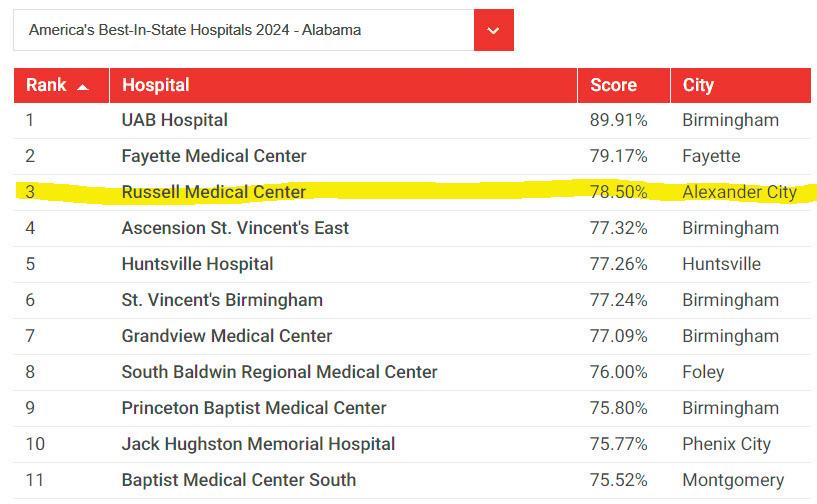
It is vital for your family member that you spend a considerable amount of time researching the long-term care facility before you send them to the home. It is much easier to pick a good home in the beginning than it is to choose a poor home and have to go through the many obstacles to improve the care or try to transfer your family member to another facility. It is important not to judge the long-term care facility on the basis of a guided tour or the nice furniture and wallpaper in the lobby. You must remember that, especially in a for-profit long-term care facility, they put a lot of effort in marketing to convince you to bring your family member to their home. The pictures of happy grandmas in their brochures, nice dining rooms and landscaped entrances do not give you an idea of the quality of the basic care that your family member will receive.
There are many ways to go about selecting a long-term care facility that will be right for you. Besides researching state inspection reports, getting word of mouth recommendations and looking at promotional literature. Nothing is more valuable than the insight you gain from making personal visits. Visit more than one long-term care facility, and visit more than once. Ask a lot of questions, and trust your feelings about the places you visit.
Find out as much as you can about each long-term care facility. A good way to do this is to talk to:
The long-term care ombudsman, who visits long-term care facilitys and investigates complaints.
Doctors, nurses, hospital social workers, clergy, and other professionals who are familiar with long-term care facilitys.
Family members and friends of people who live in the long-term care facilitys.
Residents of the long-term care facilitys.
Long-term care facility employees, especially nursing assistants, who give 90 per cent of the care.
Ask a lot of questions about any long-term care facility you’re interested in. Examples: Do people you talk to regard this as a good long-term care facility?
Has the state licensing agency found an unusual number of violations here?
Does the home have enough staff, especially nursing assistants, to give residents the care and personal attention they need?
Are staff friendly, considerate, and helpful?
Are residents treated with dignity and respect?
Are there a lot of staff changes because workers leave?
Do staff do their jobs well?
Does the long-term care facility provide the special services your loved one needs?
Are there always enough linens and other supplies?
Are families concerned about fee increases or extra charges for supplies or services?
Is the “quality of life” good such things as choices of food at meals and which clothes to wear, a homelike environment, and interesting or entertaining activities?
Does the long-term care facility have an active resident council? An active family council?
Are there some really good things about this facility?
Planning ahead is one of the best ways to ease the emotional stress when seeking a long-term care facility. Id you are helping a relative or a friend find a long-term care facility, involve them in the process as much as possible. If the person is mentally alert, it is essential that their wishes be considered every step of the way.

in the admission process and the first few days in their new home.
Visit rooms where various therapies and recreational programs are held.
Observe the dining area, beauty salon and the schedules for each.
Inquire about security measures, especially for residents who have a tendency to wander.
Ask about facility policies regarding use or installation of telephones, cable television and bring personal items into the facility.
Observe how the staff meets with you and how they interact with other residents during your visit (are they respectful, caring, and attentive?)
Observe if the residents are occupied, supervised, satisfied, well groomed and if the rooms are personalized.
Is the facility free of overwhelming unpleasant odors?
Is the home clean and well-maintained?
Do chairs and other furniture seems sturdy, attractive and comfortable?
Is the facility well lighted?
Taste the food, is it good?
Are the residents who need help eating receiving assistance?
Are there hand rails in hallways and grab bars in bathrooms?
Is the temperature comfortable?
Do patients rooms have windows?
Do not choose a long-term care facility on the basis of a guided tour or the nice furniture and wallpaper in the lobby.
In selecting a long-term care facility make personal visits.
By planning ahead and educating yourself and your family about long-term care facility care and services, it will become a much easier transition when you can no longer put off admitting someone to a long-term care facility. It will also put the future resident’s mind at ease to know what to expect
Ask alot of questions about any long-term care facility you’re interested in.
Planning ahead is one of the best ways to ease the emotional stress when seeking a nusing home.
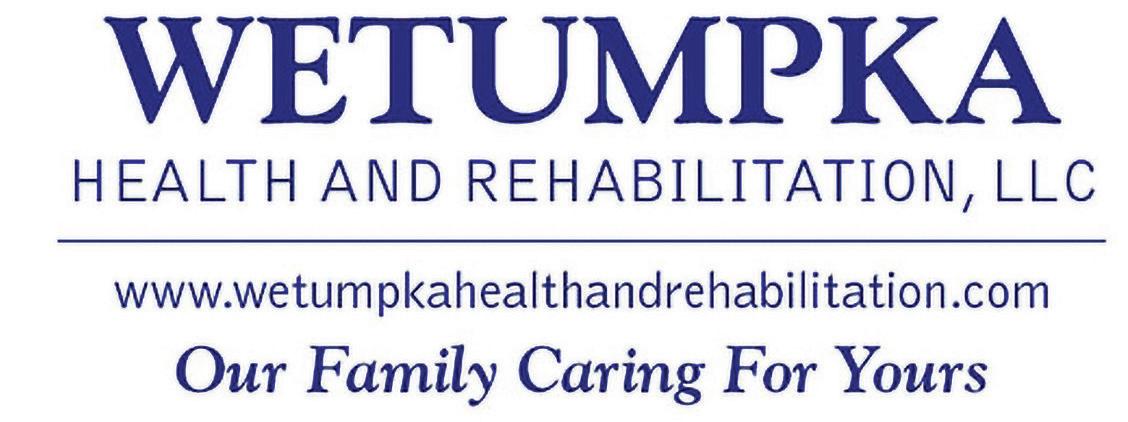



In today’s hectic world, we plan for every kind of event that will affect us. We buy insurance for our home, health and death, however, many people are uncomfortable with the idea of planning their own final arrangements.
Pre-planning your own final arrangements makes sense. Everyone is going to need the services of a funeral home and cemetery eventually and setting out your wishes in advance ensures your requests are known to your family and helps them through this painful time. It’s never easy thinking about your own death, but learning about all your options in advance and coping with them ahead of time is easier.
Many people are unaware of the huge amount of decisions that must be made while planning their final arrangements because they rarely make these types of decisions. Some experts say on average 50 decisions must be made when arranging any funeral.
Making arrangements in advance can simplify the process.
The first step is talking with industry professionals and finding one who can help you with the process. These professionals can guide you through the decisions that must be made when planning a funeral. Some funeral directors have printed information with a list of topics to consider when planning and space to record your wishes.
Some of the topics to consider include:
Visitation, type of service (for example, religious or military)
Type, color and style of the casket or burial container
Location of cemetery space
Selection of memorials
Choice of music
The selection of any special readings.
Many people choose to personalize the service to reflect their personality. This can be expressed through location of the service or the type of music played.

Making arrangements in advance can simplify the process.
Make sure your loved ones know your wishes.
Additional information may include important details for family members such as medical history, estate information, banking information, real estate holdings, insurance policies and will information.
Consider talking with family members when pre-planning so they will understand your wishes and help you make decisions.
Another advantage of pre-planning your final arrangements is considering
how to pay for it. Prices for funerals can be high with a national average coming in at approximately $7,000.
To ease the burden on family members later, you can pay for the event in advance . With this option, you pay for the final arrangements at today’s prices and freeze the cost.
Another options is using life insurance. If you use life insurance funding, you can receive tax-advantaged protections against the risk of sudden, unforeseen death.
While pre-planning, look into the flexibility of the plan. Some plans can be transferred to another funeral home and cemetery if you relocate to another area.
Finally, make sure your loved ones know your wishes and where documentation of the pre-planned arrangement is located so they can use it.














Afamily practitioner is a physician that treats all ages of patients for routine illness or injury (cold, fl u or broken bone), chronic medical conditions and screening for more advanced diseases. In addition, a family practitioner promotes disease prevention by advising patients about risk factors associated with more diffi cult diseases. Just as important is the family practitioner’s role as a referrer or gatekeeper to specialists. When you have symptoms that require attention by a specialist, your family doctor can be the person who determines which type of specialist you need to see. Afterward, the doctor and specialist can coordinate your care. There are different kinds of family practitioners, also called “primary care physicians.” Many family practitioners take care of all family members. A pediatrician cares for babies after birth and children generally up to age 18. An internist is trained to care for adults ages 18 and older. A geriatrician specializes in care for older people, generally ages 65 and older.
Family practitioners know the most current treatments and technologies. They train for 3 years in real practice settings, treating patients in the offi ce, the hospital and at home. And they re-certify more than any other medical specialty. Family doctors also continue to educate themselves. This allows them to apply the latest medical breakthroughs to the everyday care of their patients.
Family doctors are specially trained in preventive medicine. They believe that preventing a health problem is better than having to overcome one. They help you make the right health choices to keep you and your family healthy.

If you are looking for a family doctor, try talking to your friends and family. Once you have the names of a few doctors, you’ll want to ask the following questions to determine which doctors are worth meeting:
Is this doctor on the list of providers who work with my insurance?
Is this doctor’s location convenient to me?
What are the offi ce hours?
Is the offi ce nearby, located on a bus route or easy to access if I use a wheelchair?
What happens if I call this doctor in an emergency?
How quickly will I get a return call? If the doctor is not available, is there someone else who can help me if I make a phone call or need an appointment? If you are satisfi ed with the answers to these questions, you’ll need to make an appointment, where you’ll want to consider this:
Does the doctor see you within a fair amount of time from your appointment time?
Does the doctor listen to your questions and not interrupt you?
Is the doctor respectful?
Does the doctor explain the meaning of diffi cult terms and otherwise com-
municate effectively with you?
Does the doctor spend enough time with you?
Are you comfortable with this doctor? Finding the right family practitioner may seem like a long, involved process; however, knowing that this doctor may partner with you for a lifetime makes it worth your time and effort.
You’re comfortable talk ing to the doctor.
The doctor answers all your questions.
The doctor explains things so that you can understand
You had enough time to ask all your questions


It’s not always easy to nd home improvement help when you experience an unexpected problem. It’s even worse when you have tons of options to pick from. When there are more than 109,000 roo ng contractors in the United States, hiring a roofer is no different.
If you need a roo ng company to resolve pressing roof issues, you can’t afford to rush the decision. Use the guide below to nd the best roo ng company in your area.
Unfortunately, insurance is often one of those cuts.
It’s a big problem if you allow an uninsured roofer in your home. Even if accidents rarely happen, you don’t want to take a chance that one does. You don’t want to get stuck paying for damages when someone doesn’t have insurance.
A roofer can provide you with veri cation of insurance. Don’t work with anyone unless they provide those documents.
much information about pricing as you can. Once you gure out your issue, reach out to the local roofers near you to get quotes.
Once you get a list of quotes, create a budget for your roof repair work. You don’t want to go for the lowest or highest price. Find a roofer that offers excellent value for a reasonable price.
Hiring a local roo ng company is the most important thing to do when you need to hire roofers. Many companies try to come in after severe issues and take over the business of local roofers. The problem is that these companies don’t know your area and what it takes to build there.
Each location has different building codes, so you need to be familiar with the local area to do the job right. On top of that, you need a license from a local government to prove you can handle the job.
Check if the companies you consider have local of ces in your area. They don’t need to be right down the street. However, they should be close enough to know your location and the rules to follow.
You would think that roo ng companies can handle every roof problem, but that isn’t always the case. There are many types of roofs and ways of dealing with issues. Some roo ng companies don’t cover every scenario. Before you consider working with a roofer, you need to understand their services. You don’t want to spend time interviewing a company only to determine that they can’t meet your needs.
Most roo ng companies show their services on a website. Make that your rst stop when researching potential roofers.
Some roo ng issues are severe and need attention straight away. Unfortunately, not every roo ng company can ful ll that request. They have full schedules, which means it can be some time before they can make it to your home.
If you want your roof problems taken care of sooner rather than later, you need to ask about the project completion time when interviewing roofers. A roofer should be able to tell you their schedule and if they can make it to your home promptly.
If someone can’t make it to your home quickly, look for someone else to work with. While there are many bad roofers out there, there are still plenty of great roofers to work with.
Unfortunately, some roofers will try to cut corners after giving them your money. They ignore your calls when you experience problems, which means you’ll have to pay for roo ng service again to resolve your issues.
Established companies don’t do this. Pros that are good at what they do will stand by their work. They offer warranties that cover any issues with labor and roo ng materials. Check to see what kind of warranty you get with your roofer. If someone doesn’t stand by their work, it’s worth skipping that roofer and picking someone who delivers what they promise.
You shouldn’t take a roo ng company at its word when it says it can handle the job. It’s easy for a company representative to know all the lingo in the roo ng industry and put on a good show. The problem is that the people doing the job won’t always perform well.
Insurance is a must for any company working in your home. Even though it’s required by law in most locations, some roofers will cut costs to increase pro ts.
Roo ng services can get expensive. While a shingle replacement may not cost too much, things escalate quickly when you start running into more severe issues.
Things get worse when you need a new roof. That’s going to cost thousands of dollars. get as
That’s why looking for positive reviews is so critical to your search for a roofer. It’s easy for someone to create an account on a website and leave a review.
Great companies like Proformance Roofers will have no shortage of great reviews. Check to see who the highest-rated roofers are in your area, and check for red ags from













